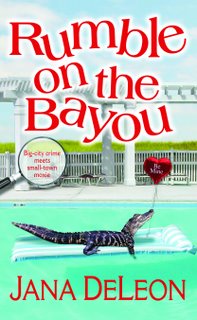STATUS: Sara and I are still chuckling over a query received this morning that was a real gem. It opened with “do I have the balls to take on a real writer.” Uh, well, if you looked at my website you would see that I am a woman. I guess the answer would be no. It got even better. This person reminded me that I should be thankful that I was queried for such a terrific project. Good because I needed the reminder. The writer also used three obscenities in the query—including the “F” word. Honestly folks, I couldn’t make this stuff up.
What’s playing on the iPod right now? NO REPLY AT ALL by Genesis
So, has your agent lost that loving feeling?
Well, if the first round submission didn’t go, then yes, I can tell you truthfully that the agent has probably lost a little of the love for the project. It’s just natural. That doesn’t mean the project is dead or that you should start biting your nails. Lots of projects don’t sell during the first round but do sell in the second (and even in the third). It’s just part of the process. Don’t sweat it.
However, it’s bad when the agent has really lost that loving feeling and isn’t willing to go the distance to try and sell a tough project.
How do you know if that’s the case?
Well first, you can look at the submission numbers. How many editors saw it? For a lot of projects—like literary or women’s fiction, you’ve got about 25 to 30 NYC imprints to exhaust before the bottom of the barrel is reached.
For genre fiction (like romance, mystery, SF&F), the number of imprints with editors who handle it is smaller—like under 15.
Sometimes an agent will go the smaller or university press route but that’s a lot of time for very little money. It really depends on the project. A literary work has a lot of options at the independent but exclusive smaller venues. An agent might be willing to go the submission distance for the prestige rather than the money or because the agent really loves the book and darn it all, it’s going to be placed.
According to a lot of writers I’ve talked to, the next big clue of lost love is when an agent becomes less accessible about communication. There’s more time between email responses. Requests for submission updates are ignored or followed up weeks later. I’m sure the list goes on.
Frustrating I know. What can a writer do?
That’s a tough question because that’s not how I operate but I would suggest that writers become pro-active. Schedule a phone meeting with the agent to discuss the status, the rejections, any strategy, future possibilities, and a definitive time frame for the submission.
One of my authors went out and did her own research, bless her soul, and really found some niche places that I wouldn’t have dug up. We ended up not needing them (as we sold it to a major publisher) but I loved that she stepped up to become a partner in the process rather than a passive participant.
Some agents hate that though so know your agent’s style.
If an agent loses the love halfway through and only has submitted it to a couple of places (or half the possibilities based on your own Publishers Marketplace research), then that’s an even tougher place to be.
If I were the writer, I would find out if the agent has any plans for a further submission. If not, you can take the project back but here’s the rub. Most agents would prefer to take on an unshopped project.
The reason why is obvious. The agent is taking on a project where some of the submission glow has already worn off. Talk about starting in a tougher place as an agent. There isn’t even the initial optimism going into a brand-new submission. The agent has to re-ignite that loving feeling just to get started.
Have I done it? Yes. But I have had mixed results on then finally being able to sell the project. It’s not my favorite thing to do so yes, I’m hesitant but if I feel that initial love, I’ll take a chance.
And a final word, some projects don’t sell—despite heroic efforts on the part of the agent.
The key is knowing whether the effort was heroic (or, at the least, tenacious). Ultimately, a writer might have to accept that the project couldn’t sell and move on.

